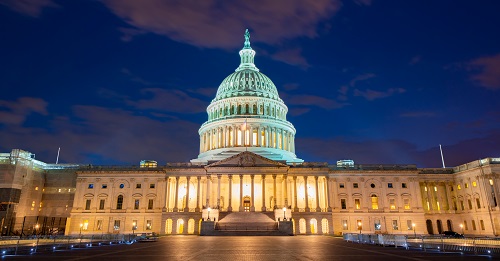
March 26, 2021 – The Senate passed a bill that would eliminate the 2% across-the-board cut to all Medicare payments – known as sequestration – until the end of 2021. The legislation, which also includes other healthcare provisions, passed the Senate by a 90-2 margin and now heads to the House for final passage.
The bill would be reprieve from a major demand from providers still struggling financially during the pandemic.
The House passed a similar bill earlier this month that extended the moratorium on the cuts, which were installed under the sequester, for nine months.
To pay for the change, the bill would increase the fiscal year 2030 sequester cuts.
The 2% cuts were originally paused by Congress as part of the CARES Act as providers started to struggle with the financial fallout of the COVID-19 pandemic. The moratorium on the cuts has been extended several times since then, with the latest extension being included in a federal spending package approved by Congress in late December.
The bill passed this week would correct the Dec. 31, 2019, date to Dec. 31, 2020, and include both Medicare-enrolled RHCs located in a hospital with less than 50 beds and RHCs that have submitted an application for Medicare enrollment as of this date.
The bill also would make several technical changes to the rural health clinic (RHC) provisions that were included in the Consolidated Appropriations Act (CAA), 2021. Specifically, the CAA required that the payment rate for RHCs, including provider-based RHCs certified after Dec. 31, 2019, be capped at $100 per visit beginning April 1, 2021. This rate will increase over time based on the Medicare Economic Index, but will remain well below typical provider-based RHC rates.
The American Hospital Association (AHA) lauded passage of the legislation but stressed that more support will be needed in the future such as “more overall funding for the Provider Relief Fund, relief for hospitals and health systems with Medicare accelerated payments.”
AHA also called for Congress to eventually pass legislation to extend a mandatory 4% payment cut to Medicare reimbursements set to go into effect under the PAYGO law, which requires mandatory spending cuts if federal spending reaches a certain threshold.
